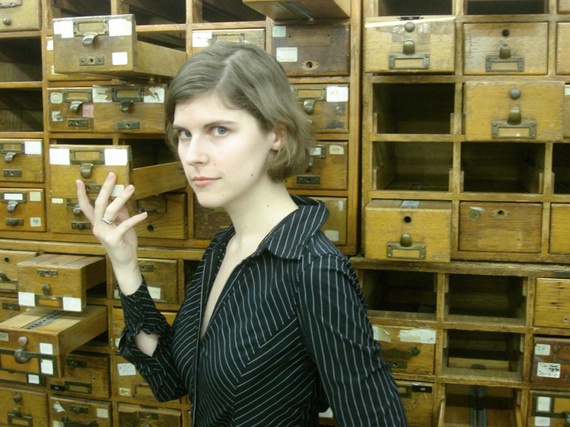If you spend five minutes peeking into the world of children's books and librarians, you are bound to find yourself on Betsy Bird's blog. The youth materials specialist for New York Public Library is a powerhouse and defies any librarian stereotypes you might have. As part of our Zoobean Experts on Air series, we sat down with Betsy to get her thoughts on everything from the recent children's book awards given to her own experiences as a mom of her own little reader. Betsy's refreshing, witty take on kids and kids' literature is one-of-a-kind. Our full conversation is below, and here are some of Betsy's observations that struck me during her talk.
We underestimate our youngest kids' capacity to engage with books.
"...what I found was that I would recommended age levels for picture books [with my daughter]. But the levels were way too high. I had no idea what a one year-old was capable of. I was way underestimating kids in general. What they have a capacity to pay attention to, what they are ready for."
Give little children, particularly toddlers, the chance to surprise you. Betsy experienced this with her own daughter, and we see it often, even our littlest children are willing and excited to engage with longer, slightly more complex stories than we expect. Try adding slightly longer books with plot lines into your rotation of early learning board books.
Kids are like otters.
"Generally what I've found is that kids are like otters. They slip back and forth between print and e-books with an ease because it's natural to them... there have always been e-books for a certain generation of kids. They'll use e-books when they are in public often if they are reading below their grade level if they don't want people to see them holding Goosebumps when they're in the 6th grade."
Our kids are showing us the future that we see already with blended educational technology. Mixing analog and digital works. Each serves its own purpose and can be helpful to a child.
Diversity in kidlit looks slightly better this year (if you judge a book by its cover).
"I've seen 2 books where a latino boy, his face is on the cover. That is almost unheard of...I can't think of a single solitary Latino boy book from last year..."
Last year, diversity in children's literature was shown to be lacking. In looking through covers of books slated for 2014, Betsy commented on the noticeable increase, especially in young adult (YA) literature, of characters of color on book covers. At this stage, it's hard to identify this as an ongoing trend, but she was pleased to see improvement over past years.
Kids want the books that interest them, and book levels can confuse the issue.
"I'm working in NYC so every child is advanced...I just heard about a parent of a 4 year old [at one of our branches] who refuses to let her child read picture books. She insists she's bored by them. There's so much damage that can be done to a child when you do that besides the fact that picture books have a higher reading level...look at the Lexile for crying out loud! We try to provide something for everyone and we don't give books levels for that reason, partially because there's so many types of leveling. Every kid is different. Some forms of leveling there is an element of competition that some kids really get into. It's so strange. Public libraries in general don't level their books but we watch very closely."
When kids find the right book, the result is magical. When parents start over worrying about levels, reading can lose its luster...fast. Picture books can be more complex than many early reader chapter books, and children are drawn to a variety of literature. Levels might matter and be particularly helpful in a classroom environment, but in the realm of reading purely for enjoyment, we should lighten up on worrying about levels and focus on interests.
This was originally posted on the Zoobean Blog
